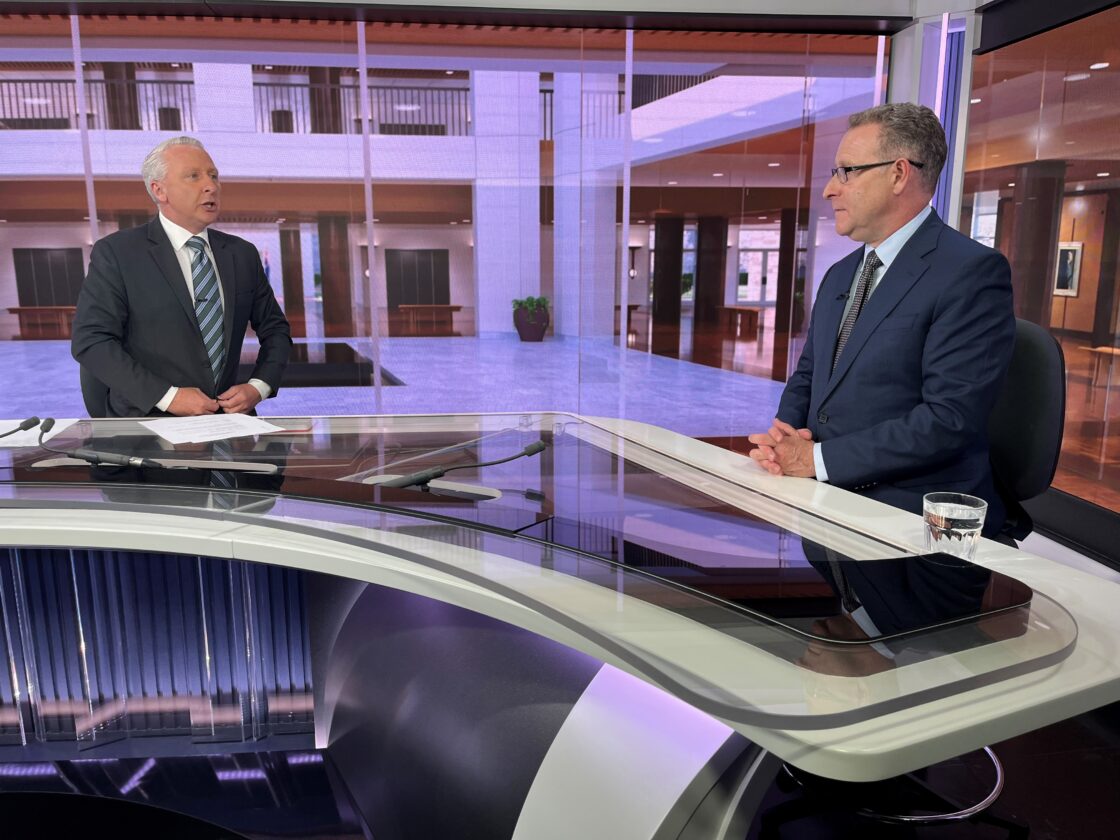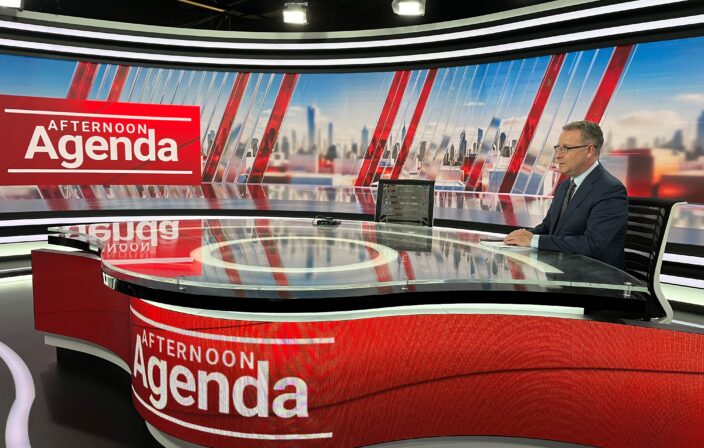Transcript: Andrew McKellar interview on ABC News Afternoon Briefing
13 Nov 2024
|Transcripts

Event: Andrew McKellar interview on ABC News Afternoon Briefing
Date: Wednesday 13 November 2024
Topics: $900m productivity fund, wages growth, tax reform.
E&OE
Greg Jennett:
Welcome back once again to the studio. We’ve got a few things to cover off today. Why don’t we start with Jim Chalmer’s speech. He’s putting on offer what he calls a productivity fund, so up to $900 million that the states could be rewarded with to do certain things about reinvigorating their economy. Not too precise what that menu of options is, but does it get the tick of approval from the Chamber of Commerce and Industry?
Andrew McKellar:
Well, thanks, Greg. Look, I think it does. It’s an interesting proposition to us. I think from a business point of view, we do see productivity as an absolutely fundamental challenge for the Australian economy. Government needs to grapple with this. I think the major parties need to grapple be a focal part of economic management for the next term. So whoever is in government next term, this has got to be central, but I think this is a good commitment from government of course there needs to be some detail. What are the specifics? But the states have got a big role in driving the agenda from here. So I think the federal government and state governments working together to make that happen.
Greg Jennett:
Moving it out of the abstract into actual decisions that states could make. I mean, one example is highlighted. They might be encouraged for commercial planning to rezone pieces of land that could also possibly have a benefit for housing activity too. What else springs to mind?
Andrew McKellar:
Well, I think one of the things that we’re seeing from a business point of view is the growing impact of regulation. So I think how we rightsize regulation, so it’s not about saying that we’ve got to get rid of all regulation. It’s got to be regulations, got to be designed and fit for purpose. The approvals process in developments, major investments, environmental approvals, the overlap between federal approvals, processes and decisions at a state level. So state planning arrangements, state environmental laws as well. I think this is a huge area. So getting our federation working right in coordination in decision making and investment approvals, then I think that can be part and parcel of what’s looked at.
Greg Jennett:
What will a parcel of money shift the dial. If some of these decisions made good economic sense, the states would be making them right now, wouldn’t they?
Andrew McKellar:
Well, it was ever, thus, and I think we’ve seen the track record in the past. There may be some costs to states in terms of revenues that they have to forego that remains to be seen. But really, I don’t think an expansive 900 million is excessive by any stretch. But bringing the states to the reform table, designing that in a way which works for everyone. If it’s win-win, it should be certainly attempted.
Greg Jennett:
It’s not going to move on. Big things like the abolition of stamp duty, is it? I mean, there’s just not enough money there to do those sorts of things.
Andrew McKellar:
Well, no, it doesn’t sound as though it will, but those are also things that need to be contemplated and I think that’s the next step that government has to look at and that is let’s get tax reform back on the agenda. So that is also linked to the productivity agenda. So I think it’s a good first step, but there needs to be a very broad and an ambitious productivity agenda for the next term.
Greg Jennett:
Alright, Andrew, why don’t we move on to wages. We got new data through the wage price index today. In annual terms ticking along at three and a half percent under control to your eyes?
Andrew McKellar:
Look, it’s not under control. I think the trend is certainly in the right direction. So what we’re seeing now is a combination of the fact that both headline and core inflation price inflation that consumers are paying is coming down. Headline inflation is now under 3%. Core inflation’s coming down a little bit more slowly. Wages the same story. So from a business cost point of view, wages growth has topped out. We’re now moving down. Hopefully what that signals is that the trend in terms of inflation, whether it’s price inflation or wage inflation, it’s heading in the right direction.
Greg Jennett:
How does private business look at recent public sector wage decisions? I mean, some are really startling to the eye. New South Wales police, 39% over four years, nurses not so much they’re taking industrial action over that, but does that bleed across and feed into wage expectations in the private sector?
Andrew McKellar:
Well, I think in the most recent figures, there’s a broad equivalence between the two, but I think, look, it is alarming when we see some really excessive claims in the public sector, and I think that’s a risk that governments have got to stand up to because if that starts to set a precedent and that keeps that pressure on for longer, then the risk is that all that is going to end up doing, if it’s not backed up by fundamental changes in productivity and it’s very hard to see where some of those claims are, if that bleeds into the private sector, it is only going to mean that those inflationary pressures remain for longer and that will delay interest rate cuts.
Greg Jennett:
I’m sure the Reserve Bank is watching that very closely. And stage three tax cuts we’re not yet done evidently on discussion about reshaping, as the Coalition has always held throughout this year that they would revisit it at some time and yet Peter Dutton signalling today that fighting inflation lowering interest rates and the general state of the federal budget will be considerations that rank ahead of revisiting stage three tax cuts. How does that sit with you?
Andrew McKellar:
Well, I think what we’d say is that stage three itself, that the horse has bolted, it’s been passed in legislation, it’s been implemented in practise. So I think trying to revisit that at this stage, there’s probably not a lot of point. The one, I think, unfortunate thing in the reconfiguration of stage three is that we lost the abolition of that 37% marginal tax rate. So bracket creep started again on July the second, and that means that over time those tax cuts will just be clawed back through inflation, so….
Greg Jennett:
Is it your expectation or wish on behalf of your members that the Coalition firmly move on the 37 per cent rate?
Andrew McKellar:
Well, I think what both sides of politics have got to grapple with here is that tax reform’s got to be back on the agenda. It’s been nearly a quarter of a century since we’ve seen anyone successfully do it. There’s been a couple of half attempts along the way, but ultimately they’ve failed. So that is fundamental. If we want to have a more productive, more competitive economy, we have to address tax reform. It’s a difficult process but someone has got to take it on.
Greg Jennett:
Alright, well if it is going to be taken on, maybe it is in the context of an election campaign. We’ll see. We’ve got a few months to roll on that one. Andrew McKellar, thank you. We’ll wrap it up there.
Andrew McKellar:
Thanks very much, Greg.


